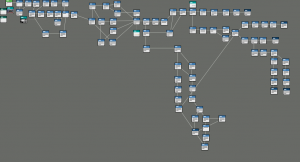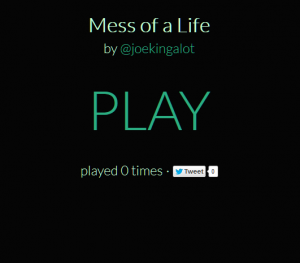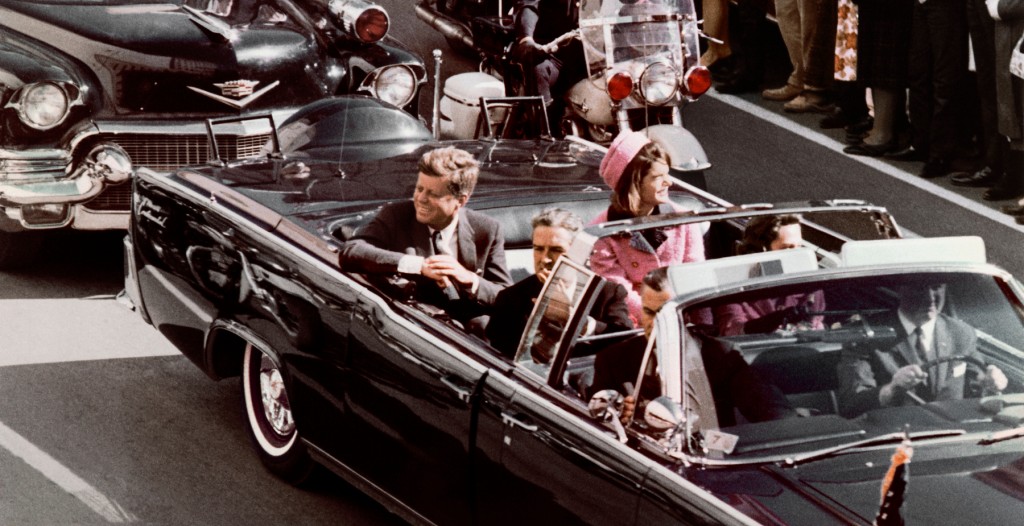a star child meets a little princess
Category: assignments
blobby crisis
Assignment: Flick Game

Play all the flick games here
Then make your own. FlickGame
Make a little storyboard and a simple character study first.
No written dialogs.
No stick men.
Use a tablet. Go to the lab or check one out from the cluster.
Original characters.
Don’t include me in the game.
Pick a conflict from
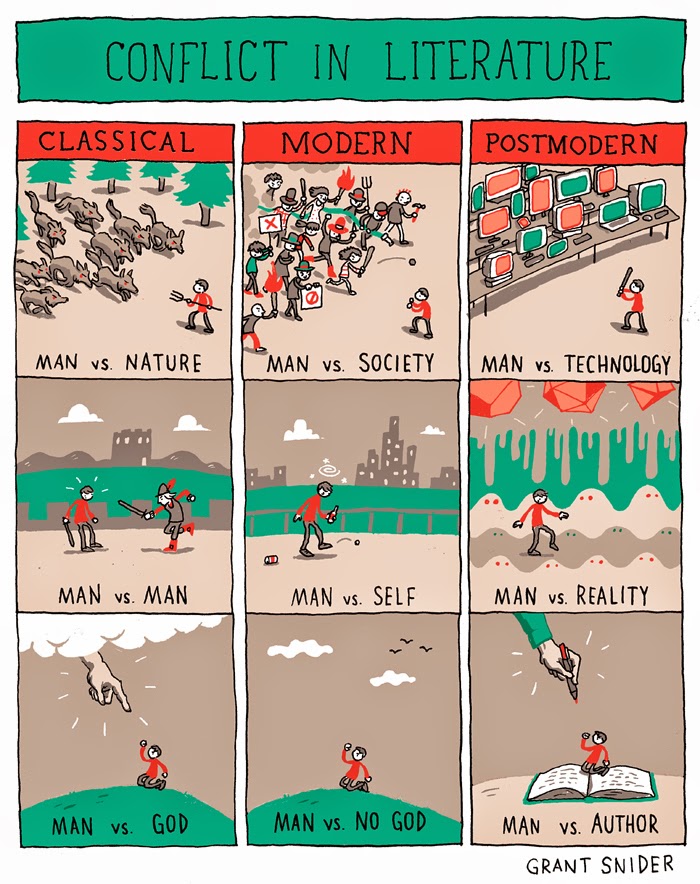
I killed an old man in This War of Mine
I had killed thousands of lives in virtual world. I killed them using cold weapons in Mount & Blade. I gave them head shots in Call of Duty. I teared them into pieces by my magics in World of Warcraft. I killed them so I won and got promotions, rewards, and more power. I got everything in these worlds by killing. So in these world we are killing for fun. The mechanics and systems behind these games are designed to encourage killing in certain areas and circumstances. So in these kind of games, I don’t remember how many lives taken away by me because I kill everyday and the lives are actually similar to my character.
Then I met sandbox games. In Skyrim, Fallout New Vegas and Watch Dog, mechanics and systems provide more variations on solving a problem. You can choose to kill since that is the most traditional way. But you have other options, such as bribe and persuasion. Compared to the games mentioned in the last paragraph, these games are less violent and more optional. Still, I don’t remember how many lives I killed too because killing is just one way to solve a problem (mostly a task) in the worlds. I am care about finishing a task instead of my way to finish it.

However, I killed an old man in This War of Mine. I killed him in a game one month ago but I still remember all the details of my behaviors and my mental process. And I still feel guilty. I Let me tell you that. My character was a cooker at that night, one of my companions was in charge of night watching at home and the other one was badly sicked in bed. I was going outside to scan for resources. I need food for my group and I need medicine to save my companion. Hospital was taken up by a group of soldiers so I had to test my lucks on an shabby building. It was said that there are foods and medicines but dangers as well so I took my pistol. Entering the building is pretty simple because it is a big building and few people lived here. I tried to be polite at beginning avoid entering the room which is taken up by others. I scanned for hours but failed to find anything useful. Even my character were murmuring that he is hungry. So I decided to take a risk. I entered a kitchen which is obviously belong to someone else. Then I got some food successfully and no one spotted me. Since I had stolen something, then I think I should steal more since there was already a penalty for stealing. So I walked around and entered a bedroom. All I spotted was the clear icon floating on the bed which showed that there was items inside. So I clicked that and my character found medicines! Oh, I can save my companions life! I took them. Suddenly, a dialogue popped out, “Don’t take the medicine. I need them”. Then I found that there is an old man lying on the bed. Obviously, he was ill. Actually, in the game, I always try to help others. I traded my medicine to one of the son whose father is ill to save his life. I went outside to help my neighbors. But now I was taking other’s medicines, I was taking his life supplements away. Without any hesitation, I pulled out my gun and shot at his three times before he died. I run away and back to home. Finally, my companion still died in sickness because it was too severe and I was killed when suffering a robbery later.
Why I kill that old man? I keep thinking about it. Rationally, killing a non-enemy using bullets is a waste of bullets and they are precious in the game. The instant thought is that I took his medicine so he would die. I was just try to make it easier. It was nice to him. But now I can admit that I killed him because I felt guilty to steal his medicine and his existence was evidence of my guilty. So I killed him for my own relief.

Emotions in game are precious and important. So one interesting question is why I feel guilty to that exact old man instead of the former bodies on my game experience path. I consider the followings might be part of the reasons.
First, in This War of Mine, there is no exact goal for players. Players struggle with survival everyday, but the game never says that is your goal. Without a goal, players cannot blame killing to game. They have to take their own responsibility for their own behaviors.
Second, when a character kill someone his mood and his companions’ and his moods will be low for several days. Exposed to others makes players more affected by social opinions.
Third, NPCs are responsive to the world. If the old man was just lying down or kept saying before I took medicine. I won’t feel he reacted to my behavior. Then I do not care about him any more.
Fourth, I died from robbery from someone else. I feel the hopelessness when suffering it.
In sum, This War of Mine provides a successful example of how to create a realistic and impressive world by an innovative way, evoking emotions.
Limbo Reflection

 A while ago I played Limbo on my iPhone. I played it with a friend over the course of several weeks. The most thought provoking part for me was the elongated death scenes. I was often so eager to move on after a failure (and there were many failures) that I got impatient with the animation. Every time I died, I had to watch my character be impaled, or sink, or drown… The animations were intricate and individualized and beautiful. Clearly a lot of attention was paid to the death scenes and they were important (in a morbid way). After a few occurrences my own irritation became obvious to me and the lightness with which we take death and failure in video games. With a single minded commitment to completing the puzzle, and given the opportunity to immediately restart and often not deal with the consequences of failure… games that force the viewer to experience death in a slow and (slightly inconvenient way) really interrupt the gameplay and for me make me think of the incongruousness in experiencing failure in games.
A while ago I played Limbo on my iPhone. I played it with a friend over the course of several weeks. The most thought provoking part for me was the elongated death scenes. I was often so eager to move on after a failure (and there were many failures) that I got impatient with the animation. Every time I died, I had to watch my character be impaled, or sink, or drown… The animations were intricate and individualized and beautiful. Clearly a lot of attention was paid to the death scenes and they were important (in a morbid way). After a few occurrences my own irritation became obvious to me and the lightness with which we take death and failure in video games. With a single minded commitment to completing the puzzle, and given the opportunity to immediately restart and often not deal with the consequences of failure… games that force the viewer to experience death in a slow and (slightly inconvenient way) really interrupt the gameplay and for me make me think of the incongruousness in experiencing failure in games.
Receiver – Zen and Immersive Difficulty
For over a month during high school, I played a game called Receiver for at least an hour every day. Initially this was because I was hell-bent on beating it, but as I tried to finish this short little game over and over it became an abnegative, almost meditative experience. Receiver is a first-person shooter made by Wolfire Games, originally developed as part of the 7 Day FPS Challenge. At its core, it’s a game where the player moves through a semi-randomly generated world, fighting robots and collecting a set of 11 tapes. This concept is expanded into a game which, for the right player, uses its mechanical difficulty to highlight its themes and create extremely engaging gameplay.
Receiver’s main claim to fame is its gun mechanics, which are some of the closest to operating an actual gun you can find in video games: every action you can perform with a handgun has a key bound to that action in-game. For example, if you’re using the basic handgun and want to reload, you have to remove the clip from the handgun, put the gun in its holster, insert bullets one by one into the clip, pull your gun back out of its holster, put the clip back into the gun, and cock said gun. The closest thing you get to a tutorial is being able to open a list of all the key commands for your gun, and the devs decided to give you a convenient ‘drop whatever you’re holding’ button that has no purpose in-game beyond letting the player accidentally drop their gun while attempting to use it.
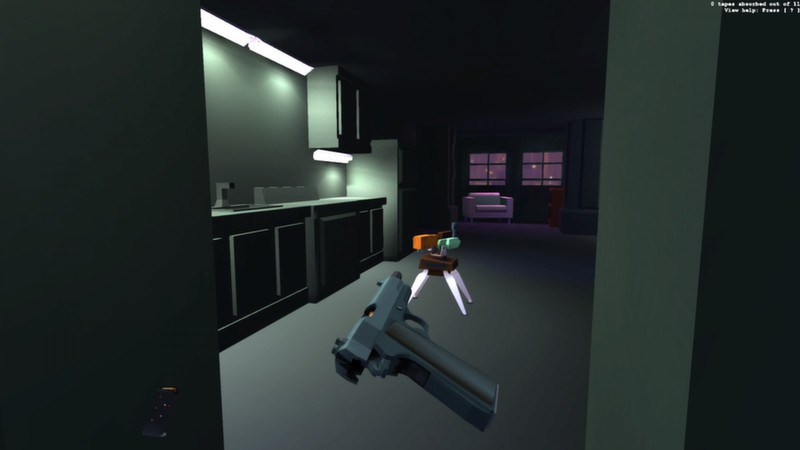
On top of that, Reciever’s world operates on a relatively simple, but extremely harsh, ruleset. taking a single bullet kills you. Getting hit by one of the small flying, electrified drones kills you, falling off of the endless skyscraper you’re exploring kills you. Falling relatively short distances kills you: Indeed attempting to travel down a flight of steps at a full sprint is liable to kill you.
The interesting thing about having a game that’s so difficult to actually operate is that is requires an extremely high level of focus for the player to learn and play the game. By necessity it requires extremely deep immersion. The kind of immersion that, once you get good at playing, has you trying to dodge a slew of bullets by near-leaping sideways out of your chair when you mess up.
However, it is not the game’s mechanical difficulty alone that makes it special. It is that fact that it’s difficulty is almost exclusively mechanical difficulty. If it were simpler to play, you would likely see every environment that it has to offer in under an hour, and anyone remotely versed in FPS and stealth gameplay would see nothing new. To put it simply the game is highly repetitive.
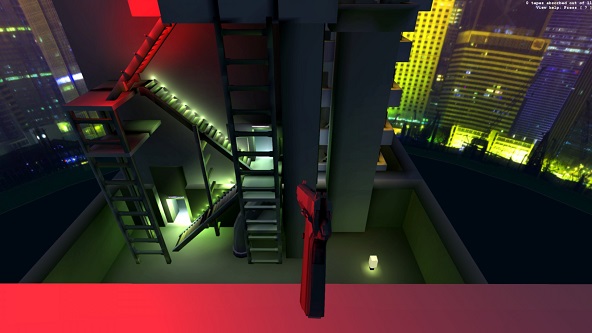
This combination of challenge is, for a normal gaming audience, terrible. But Receiver isn’t so much a game as it is a sort of skill. This is why I am willing to call the game meditative. Zen buddhism explores the concept of unconscious mastery of a skill as a form of meditation: That being able to do something extremely complex tasks without thinking allows the actor to enter a special mental space. The historical example for this idea is archery, but the exact same idea of unconscious mastery through repetition is ever-present in, and fundamental to, Receiver.
I never actually beat Receiver, and I have only found one documented case of it being beaten . This game, that I devoted days to can be beaten in 25 minutes. Frankly, I would have been unsurprised to learn that it was in fact unbeatable. The game’s story is based on the concept that you are trapped in some form of lower reality, and collecting the tapes (messages from higher beings) will somehow set you free. A simple enough narrative that has a strong links with both buddhist philosophy and the game’s mechanics. Receiver is very cyclical. the second you fail you start anew, with a similar but different map, possibly a different gun, but the same goal and exact same behaviours. And it is because so little changes when you play it that this Zen state is explorable in Receiver.
Vacation Days
Treely Gifted
Emergence
Emergence is a game about an artificial intelligence trying to solve the meaning of life.
batter batter batter
Mess of a Life
Play as a newly hired and aspiring janitor! Create your own filthy way out of this messy rat race! Pursue your ambitions or revile in your disgusting self-failures!
EDIT: UPDATED AGAIN~
The Grouper by Bryce Summers
The Grouper
A Twine story written By Bryce summers.
An eclectic, frenetic tale of interconnections and synthesized possibilities.
Online Project: Link to Project online.
Instructions : Click story links to transverse the splendid story!
This twine assignment was made in fulfillment of Assignment 1.
Curtain Rods, Killing Presidents
A game about Lee Harvey Oswald, The man who most probably shot JFK.
http://www.andrew.cmu.edu/user/gdebree/curtain_rods/curtain_rods_2.html
Cold Fruit
Love the smell of fruit in the morning? Today is a cold day to eat fruit.
Cold Fruit is a parody of the Cold War in the perspective of competing fruit farms.
[Image used with permission from Wikimedia Commons.]
Chewed Up and Spit Back Out
Quest Quest
QuestQuest is a game that explores and subverts common tropes with RPG quests.
The Floor Plan

The Floor Plan is a text-based exploration game. The player walks into a weird house and tries to reveal the unique physical principles inside it. To finish the game, the player needs to find a right way to escape from the house.
http://qiaochuli.com/Story/TheFloorPlan_v2.1.html
By Qiaochu (Mac) Li
me, myself, and I
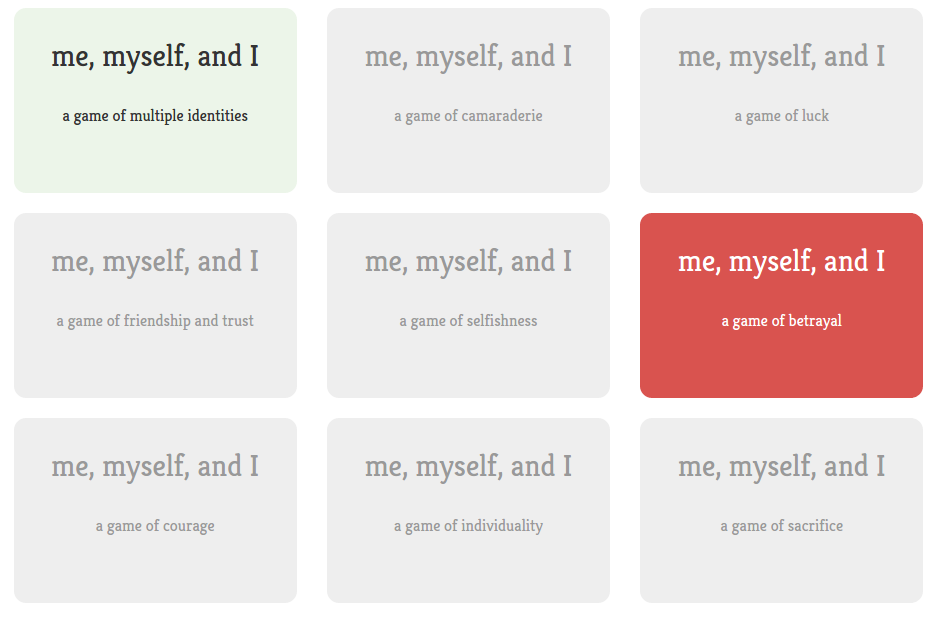
me, myself, and I is a game about identity (9 of them), sacrifice, selfishness, and selflessness.
Homeplay II: Twine games
Play your assigned game from the second group
Plus another Twine game of your choice from the list above.
Here are some other good examples/collections:
https://itch.io/games/tag-twine
http://www.freeindiegam.es/?s=twine
http://aliendovecote.com/intfic.html
http://twinehub.weebly.com/




